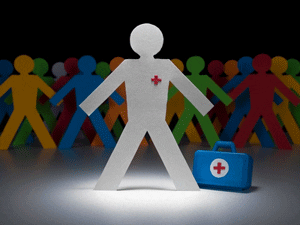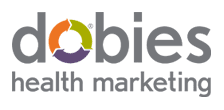Healthcare Marketing Has Real Life Impact
 It’s easy to get wrapped up in ROI and profit-building strategies. After all, as healthcare marketers, that’s what we’re hired to do. We drive growth. We build brands. And when we do, we often save lives.
It’s easy to get wrapped up in ROI and profit-building strategies. After all, as healthcare marketers, that’s what we’re hired to do. We drive growth. We build brands. And when we do, we often save lives.
Every day I wake up thinking about the consequences of our work. If you’re the chief executive at a healthcare organization, you and I have that in common. In healthcare, we know far more is at stake than the bottom line. Real people are affected by what we do and say about your brand.
Just one short post may have been the most important thing I did the other day. I read a forum chat between two men who had testicular cancer—one a survivor and the other a young man searching for information about the best doctors, treatments and cancer centers. Armed with knowledge and confidence in the medical care at Indiana University, I inserted myself into the conversation and posted a recommendation. I connected the young man to an oncologist and researcher I was fortunate to meet in 2006 – the same physician who saved Lance Armstrong’s life a decade earlier.
Just a personal story? Not really. In many ways, this is what we do for our clients every day. We convince patients, patients-to-be, physicians, suppliers, manufacturers and healthcare organizations of all kinds to make better, more informed choices. We convince people to choose our clients’ brands. We encourage people to make connections that save lives. These are the consequences of healthcare marketing.
Here’s what I mean:
When we promote cardiac care, we say the heart center can reliably and consistently open blocked arteries in notably less than the 90-minute national standard. As our clients know, we won’t execute a single ad until we absolutely, positively know the promise can be delivered. When we produce white papers, webinars and campaigns to convince pathology labs and blood banks to adopt new patient safety technologies, we know that patients can benefit. We also know failure to do so can have devastating consequences.
I could go on and on with examples like these, but the real bottom line is this: everyone deserves to make informed decisions about healthcare. That’s why Dobies Health Marketing exists, and it’s why we are so passionate about everything we do for our clients. As a healthcare CEO, you deserve a marketing partner like us – experts who know how to drive new patient volume, sales, and market share, and who wake up every morning thinking about the consequences of what we do for your brand.

 Recently, we heard some compelling stories about a client’s brand. We were conducting consumer in-depth interviews (IDIs) to better understand how people make personal healthcare decisions, as well as their perceptions of our client’s brand.
Recently, we heard some compelling stories about a client’s brand. We were conducting consumer in-depth interviews (IDIs) to better understand how people make personal healthcare decisions, as well as their perceptions of our client’s brand.